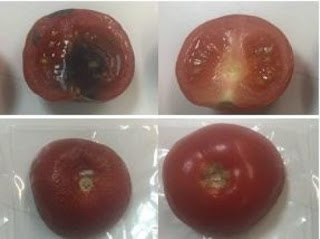CLAY BASED FOOD PACKAGING
From time to time it appears as though fresh fruits, vegetables, and meats go terrible within the blink of a watch. Customers are left feeling pissed off, regularly turning too much less costly processed ingredients that remain fresh longer but are less nutritious. Now scientists file that they've evolved a packaging film covered with clay nanotubes full of antibacterial essential oil. It presents a one-two punch, stopping over-ripening and microbial growth, that may assist improve the shelf life of perishables.
Humans around the world were seeking to hold fruits, vegetables, and meats since precedent days. From the traditional strategies of salting or fermenting to the greater contemporary methods of canning, freezing or wrapping in plastic films, food preservation has constantly been vital. About 30% to 40% of the food that farmers produce is going to waste. on occasion, busy humans just don't have sufficient time to consume all of the sparkling meals they purchase, however different times meals spoils at the grocery store because clients keep away from purchasing imperfect fruits, vegetables and meats.
Over the past twenty years, scientists had been developing other ways to preserve food, with an intensive consciousness of the packaging. Various problems, like the flexibility of the materials, have hindered development. Bacterial infection and permeability to each oxygen and water vapor are predominant problems that scientists are addressing. Another challenge is to prevent an excessive amount of ethylene from constructing up around meals. Ethylene is a compound naturally discharged by vegetables and fruits and aids in the ripening technique, however, an excess this gas trapped beneath the packaging film can purpose food to over ripen and decay.
To satisfy the demand for multi-useful packaging polyethylene film was used. To provide a gas barrier the organization included small, hollow cylinders called clay "halloysite nanotubes". The nanotubes prevent oxygen from getting into the film and prevent water vapor and different gases from escaping. Further, they preserve ethylene from building up with the aid of soaking up it. The scientists loaded these nanotubes with natural antibacterial oil found in thyme and oregano called carvacrol and coated the internal surface of the packaging film with the loaded nanotubes to kill microbes.
The group wrapped bananas, tomatoes, and meat in a film to check its effectiveness over various amounts of time compared to foods wrapped in simple polyethylene. After 10 days, tomatoes wrapped with the new film have been higher preserved than the controlled veggies. Further, the brand new film helped bananas stay more firm and maintain their vibrant yellow color after six days compared to the control fruit. Meat enveloped with the film and refrigerated for 24 hours confirmed drastically much less bacterial growth than meat in simple polyethylene.
Though these technologies help enhance the shelf life of foods but need more time to be applied to industrial applications.
Visit: https://agriculture.foodtechconferences.com
Visit: https://agriculture.foodtechconferences.com




Comments
Post a Comment